Evaluating Country Programmes - OECD Online Bookshop
Evaluating Country Programmes - OECD Online Bookshop
Evaluating Country Programmes - OECD Online Bookshop
You also want an ePaper? Increase the reach of your titles
YUMPU automatically turns print PDFs into web optimized ePapers that Google loves.
<strong>Evaluating</strong> <strong>Country</strong> <strong>Programmes</strong><br />
86<br />
Box 2.5. Recommendations for good practices<br />
in country programme evaluation (cont.)<br />
– The widest possible stakeholder consultation and involvement is required in<br />
CPEs. In addition to informal interviews, consideration should be given to using<br />
customer surveys, focus group discussions and/or field-based participatory<br />
methods.<br />
– Reporting and follow-up procedures should be specified in advance. Normally,<br />
CPEs will be discussed either by senior management, by the governing body of<br />
an institution, or by the donor Parliament. There is a strong case for circulating<br />
them to other country programmes run by the donor. If they can also be made<br />
available to the taxpaying public, other donors (particularly in the same country,<br />
but also at DAC/donor headquarters level) and implementing partners such as<br />
NGOs, this is to be desired.<br />
performance). Few of the CPEs that we reviewed paid much attention to these<br />
contextual issues, when systemic issues in particular may have an important role to<br />
play in explaining the effectiveness of aid at the country level.<br />
The fourth key point for discussion is the issue of how to use CPEs constructively<br />
for policy formulation. Many CPEs also made explicit how they would be disseminated<br />
(to the Board of the agency, to the partner government, to the donor<br />
Parliament or to the general public). Several donors were committed to share the<br />
results publicly wherever possible. Once again, “best practice” depends in large<br />
part on the nature of the donor, the partner government and the country<br />
programme.<br />
The key questions for donors thus concern the amount of money and time they<br />
should spend on a CPE under given circumstances. These decisions should be<br />
guided by a consideration of the inherent evaluability of the country programme in<br />
question, realistic expectation of how the CPE findings will relate to practice. A<br />
short and simple sketch may be the most appropriate approach when a) the nature<br />
of the instruments or channels of aid make it hard to attribute or measure impact;<br />
b) weak monitoring systems and poorly organised country programme documentation<br />
provide a weak information base; or c) when other considerations (the realpolitik<br />
of non-aid donor motivations or a partner government which lacks the will to review<br />
and adapt the terms of aid and development policy) mean that recommendations<br />
for significant change are unlikely to be implemented. A more ambitious research<br />
effort may be justified when aid activities are amenable to evaluation, when there<br />
are enough resources (existing information, time, money and skills) available for<br />
<strong>OECD</strong> 1999





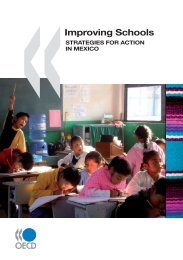
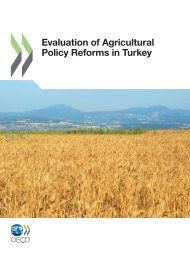
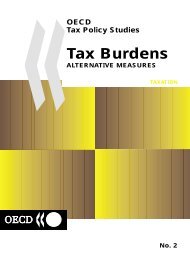
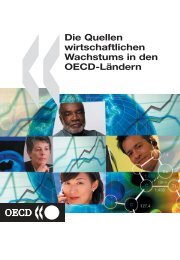
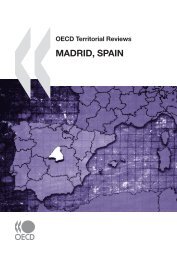



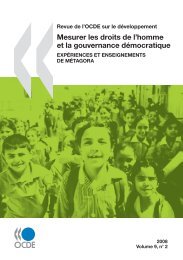
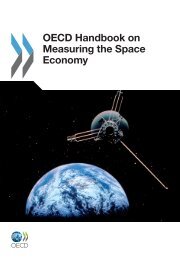
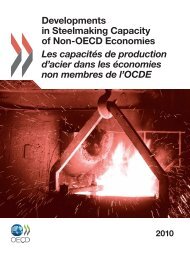

![CQE=U]^\]Z: KAZAKHSTAN - OECD Online Bookshop](https://img.yumpu.com/3915768/1/190x253/cqeuz-kazakhstan-oecd-online-bookshop.jpg?quality=85)